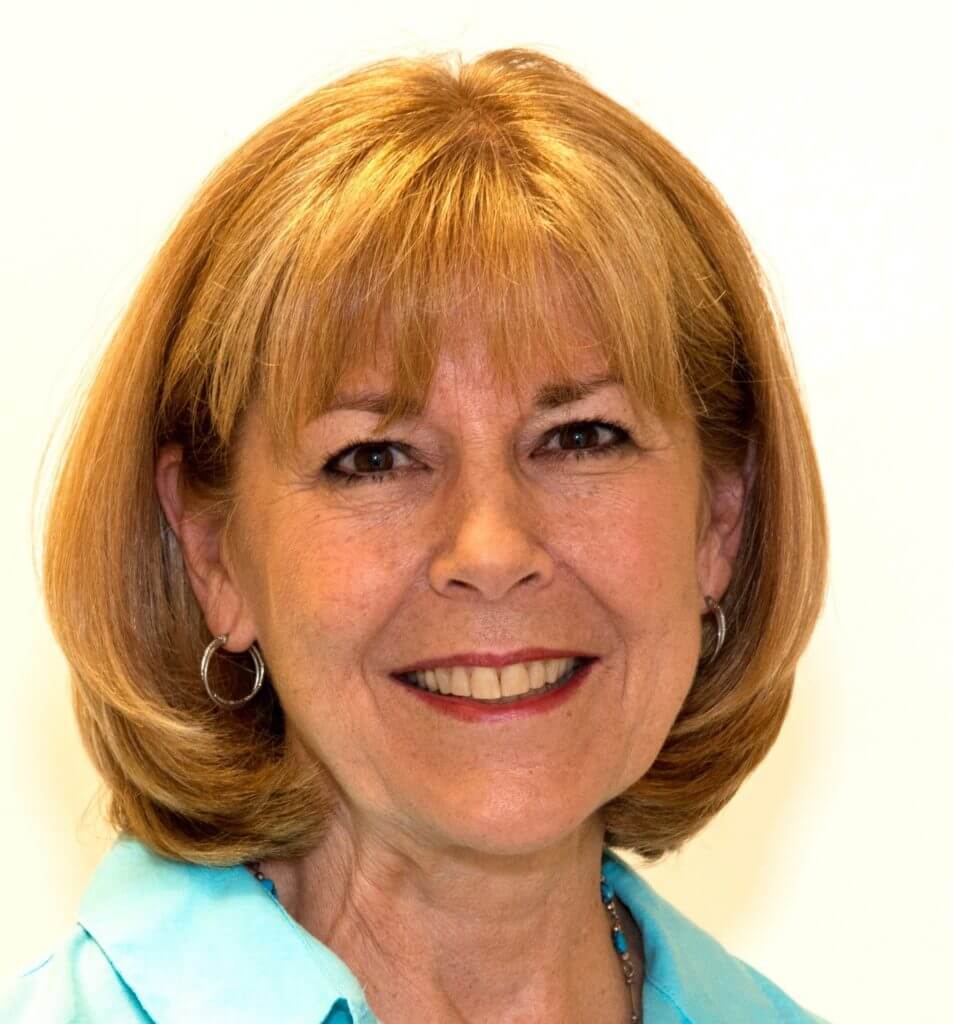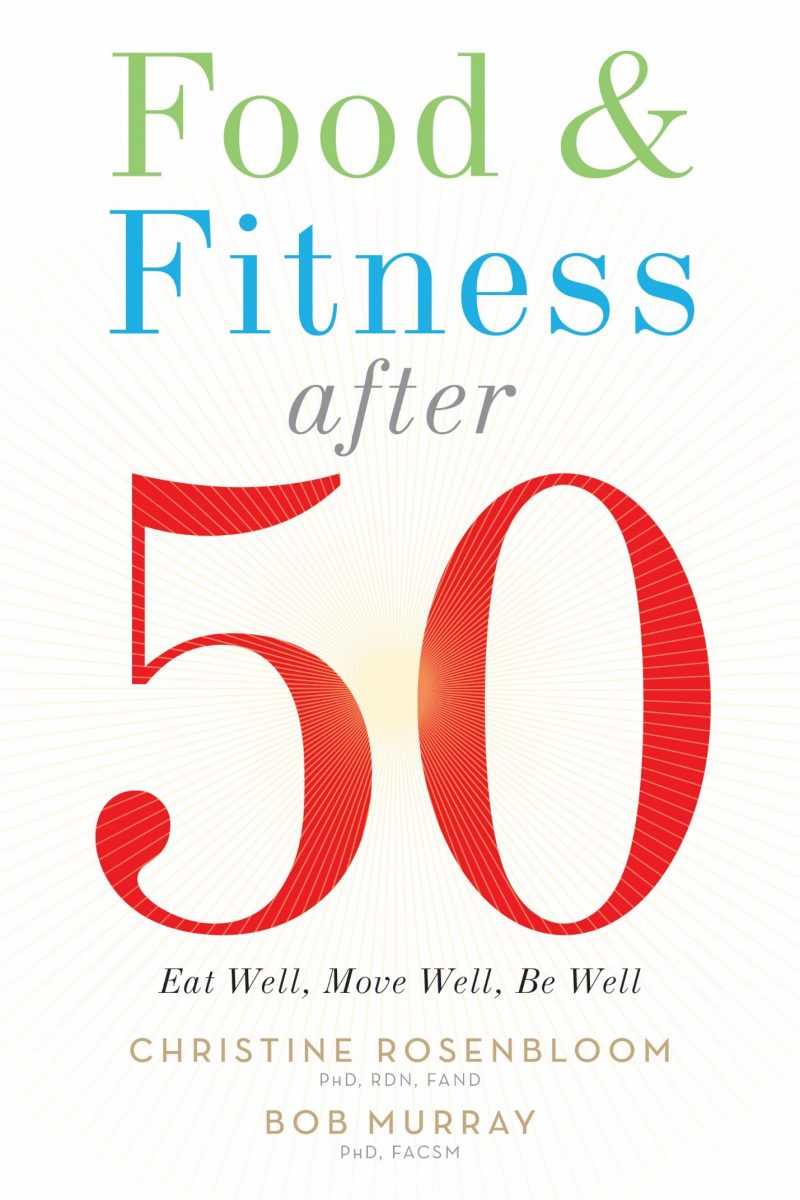Plant Chat: Chris Rosenbloom, Food & Fitness After 50

Welcome to my Plant Chat, Chris Rosenbloom, PhD, RDN, FAND, author of the fabulous new book, Food & Fitness After 50! Chris is a friend, colleague, and registered dietitian nutritionist. She is a nutrition professor emerita at Georgia State University and has more than 40 years of experience teaching, writing, and speaking about nutrition. Today, Chris is a nutrition consultant who works with food and nutrition companies, professional health organizations, and food marketing and communications firms to spread the word about food and nutrition. Her book Food & Fitness After 50, with co-author Dr. Bob Murray, was released in October 2017. Read on to learn more about Chris’s practical plant-based nutrition tips for healthy aging.

What inspired you to write this book?
My graduate studies were in gerontology, or the study of aging. For many years, I taught a course called Health & Aging at Georgia State University and I also provided nutrition counseling to the sports teams at the university. I always told myself when I retired from university teaching I would bring my two passions together: sports nutrition and healthy aging. So, that was how Food & Fitness After 50 was born. I recruited a renowned exercise scientist, Dr. Bob Murray, to co-author the book to cover the fitness angle. Bob and I are both in our mid-sixties so we know first-hand what our peers face as they age and we bring our expertise in nutrition and fitness to help others.
What is one of the most important nutrition issues people over 50 face?
As we age, we need fewer calories yet we need more protein to support muscle maintenance and to build muscle (yes, you can build muscle past the age of 50 with good nutrition and weight training!) But, many people eat the same way they did when they were younger, leading to weight creep while at the same time losing muscle mass. We encourage people to choose nutrient-rich foods at every meal and to get about 30 grams of protein at every meal. Spreading protein throughout the day is important to “feed” the muscles with a steady stream of amino acids, the building blocks of protein.
What do you think people have the most difficulty with as they age?
Many people struggle with the physiological changes with aging…reduced aerobic capacity, less flexibility and agility, changing body composition, losing bone density, hearing and vision changes, and the desire to turn back the clock. The good news is that many of the changes we think of as usual age changes are really the result of disuse…disuse of muscles, heart and lungs, and not challenging our bones. We can’t do much to reverse vision and hearing loss, but there are powerful medical advances that can help; such as cataract surgery. I can say first hand that it is modern miracle and after a lifetime of near sightedness, I no longer need to wear glasses! But, we can do a lot to correct the other changes with exercise and diet.
How powerful is nutrition for healthy aging?
I think it is the most overlooked thing to get on a path to healthy aging.
“Everyone knows how important exercise is for healthy aging, but we should be choosing nutrient-rich foods: fruits, vegetables, whole grains, nuts, beans, lean protein, and healthy fats at every meal.”
We don’t advocate for low this or high that in our book, but we suggest four principles of an optimal diet:
- Inclusion of all energy-containing nutrients (carbohydrate, protein, and fat)
- A focus on nutrient-rich foods
- A concern for disease risk, as many of the most common chronic disease occur as we age: high blood pressure, type 2 diabetes, heart disease, and even some cancers
- Enjoyment of eating and mealtime
Can you share your top tips for eating a plant-based diet for people over 50?
Protein quality and quantity is very important for people over the age of 50. It is important to choose high protein plant foods at every meal. So, while a green salad might be someone’s usual lunch, I suggest bumping up of the protein by adding chickpeas, sunflower seeds, or chopped nuts. I would also encourage the use of soy or quinoa; both are complete proteins, meaning they contain all the essential amino acids in one food. A tofu noodle bowl or quinoa soup are good plant-based protein dishes. The average American eats less than 15 grams of protein at breakfast and 60% of protein at dinner; so, we need to encourage people to find ways to spread protein throughout the day. Plant-based eaters might want to try pea or hemp protein drinks or powders to boost protein.
How can people embrace aging more peacefully, while still doing their best to preserve health?
We live in a culture that venerates a youthful appearance. I especially find that women are very hard on themselves. They complain about a little more fat around their middle or on their thighs and long for the days of being 25 again. People are always searching for the miracle cure; but in our heart of hearts we know there is no magic to healthy aging. Everyone always asks me what is the “best” diet or “best” exercise; the truth is there is no “best,” but there are lots of “goods!”
Through writing this book, I have come face to face with my own aging (I am 66) and I encourage acceptance.
“I tell everyone who complains about getting older to remember that not everyone gets the privilege to grow old. Taking control of your life by eating well and being fit is the best thing anyone can do to grow old gracefully.”
What are your own diet strategies you practice to live a vibrant, healthful life?
I eat anything I want to eat. I just don’t eat it as much as I might want! I never miss breakfast, and while there is debate among researchers whether it is the most important meal of the day, it is for me. It helps me stay energized and focused during morning exercise classes at my local YMCA and provides nutrients that I need. I like cereal and milk with berries, yogurt with oatmeal and nut granola mix, and I do eat eggs. I monitor my weight by weighing every morning; that keeps me at a healthy body mass index and then there are no surprises when I get weighed at a doctor’s office! I enjoy cooking and trying new recipes, although I don’t develop my own recipes, I do assemble plenty of meals from ingredients in my kitchen.
Can you share a few plant-based foods that are always in your kitchen?
I could not live without beans: black beans, kidney beans, garbanzo beans, vegetarian baked beans….
“All beans are my go-to foods.”
I always have a stock of canned beans on hand (I’m too lazy to cook dried beans!), but I do rinse them in a colander to reduce the sodium. I am a big fan of hummus, avocado, nuts of all types, and seeds, like sunflower seeds.


